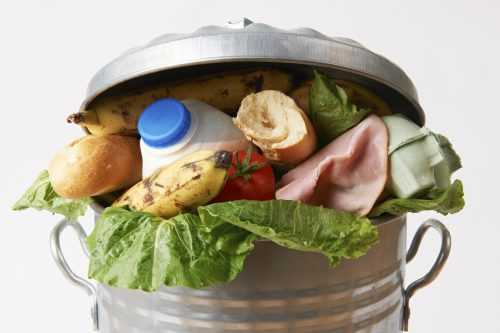
Last Friday, my friends and I decided to get together and relax downtown rather than head to a Halloween-themed party as we thought that was a better idea as we were dead tired from the two midterms and major assignment we had to endure just the week prior. For dinner, we decided to eat at a fast-food restaurant we never tried before. When we walked through the door to the establishment filled with decorations resembling the 1960s, we immediately noticed a man throwing out almost an entire hamburger into the rubbish bin rather than taking it home as leftovers. This left me pondering about the vast amounts of food our society wastes on a daily basis.
Upon further investigation, I discovered that Canadians waste an estimated 40% of their food each year with households taking up just under half of the amount wasted while corporations are responsible for presumably the other chunk. This is a major issue to consider as not only is it unethical to simply disregard food while some parts of the world are starving, it creates losses well into the billions for both businesses and households alike. Simply speaking, it just doesn’t make sense for businesses to disregard absolutely fine food. Not only does doing so drain away potential revenue, it is, at least in my opinion, appalling to throw waste food while many people across the globe barely has enough to eat. In fact, while Canadians lost $31 billion worth of food last year, approximately 9 million people perished from starvation in the same year, a number greater than the Holocaust (not saying that the Holocaust was not a horrific event of humanity in any way). It simply blows my mind this issue is not as heavily addressed as it should.
Furthermore, limiting food wastes can potentially create secondary markets and deduct losses of businesses. As seen with Walmart recently, they have cut their losses from their consumables inventory by 20% since CBC Marketplace exposed the company of throwing away food by the tonnage, a remarkable accomplishment. Additionally, as noted by current shopping habits such as the increase in popularity with thrift stores and decline in purchases of expensive jewelry, society is currently at a stage where superficial concepts such as bruises on fruits and food a few days over the best before date don’t really matter anymore. Thus, it makes no sense for corporations to continue wasting food when they can still generate revenue and benefit society by selling food they’d wasted instead.
Word Count: 414
Imagery Source:
-http://seedsfoodmarket.ca/theOffice/wp-content/uploads/2016/03/15951717452_1fb8ef310e_o.jpg